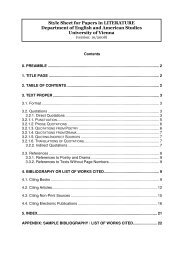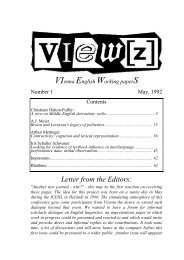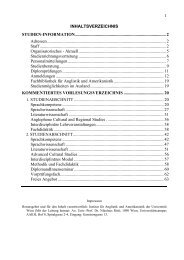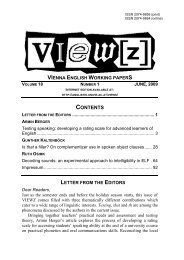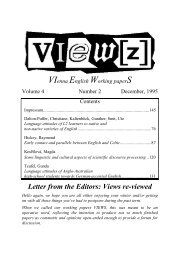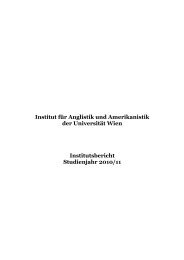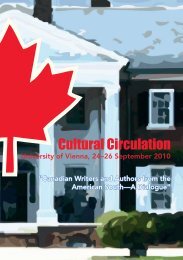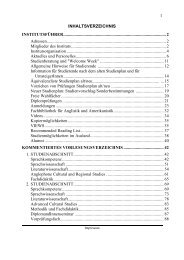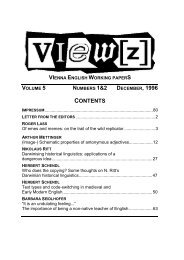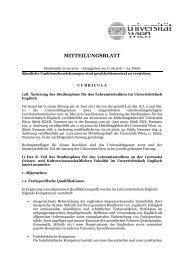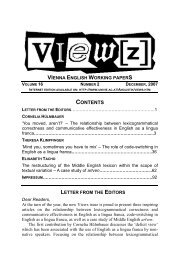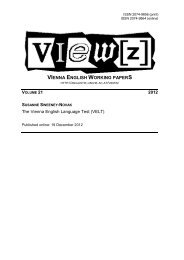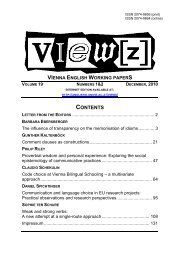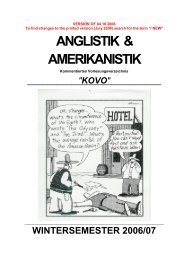1 INHALTSVERZEICHNIS STUDIEN-INFORMATION ...
1 INHALTSVERZEICHNIS STUDIEN-INFORMATION ...
1 INHALTSVERZEICHNIS STUDIEN-INFORMATION ...
Create successful ePaper yourself
Turn your PDF publications into a flip-book with our unique Google optimized e-Paper software.
experience of computational resources and techniques that language experts and teachers should<br />
be familiar with. The core of the course will be participants' own small-scale projects.<br />
51<br />
Pragmatics in Language Teaching<br />
(anrechenbar für das applied linguistics-Modul 226/228 und als K 518/K 531/32)<br />
Gastprof. Gabriele Kasper, LEIDER KURZFRISTIG ABGESAGT!<br />
Registration see p.<br />
The course will examine different approaches to instruction in second/foreign language<br />
pragmatics, discourse, and sociolinguistics. It will cover observational studies on the<br />
opportunities for acquiring pragmatics in authentic classroom settings and interventional studies<br />
designed to examine the effectiveness of different teaching approaches. Particular focus will be<br />
given to the theoretical foundations and research methods adopted in the studies. In the final part<br />
of the seminar, options for testing pragmatic ability will be discussed.<br />
Required text: Rose, K. R., & Kasper, G. (Eds.) (2001). Pragmatics in Language Teaching<br />
Cambridge: Cambridge University Press.<br />
226/236: Linguistik-Modul: Special linguistics course<br />
A 'module' consists of two courses of 2 semester hours (2st) each, which are topically related<br />
and thus form a thematic unity. (Please note: a module can only contain one lecture course.) At<br />
the moment, three such modules are offered in English linguistics:<br />
1. Historical linguistics<br />
2. Applied linguistics<br />
3. Descriptive linguistics<br />
These courses have the numbers 226/228 and 236/238. Usually at least one course in historical<br />
linguistics and applied linguistics is offered every semester, so that students can finish a module<br />
within two to three semesters. Modules from other areas of linguistics (e.g. descriptive<br />
linguistics) are also offered, but less regularly, so that it may take longer to complete such a<br />
module.<br />
Courses:<br />
Historical English Morphology<br />
(anrechenbar als K 517, K531/32)<br />
2st, VO<br />
Dieter Kastovsky, Tue 11-13, Unterrichtsraum (ab 8.3.)<br />
This lecture will deal with the development of primarily inflectional morphology since the Old<br />
English period. It will start with a brief description of Modern English, which will also be used<br />
as a general introduction into the description of morphological systems (notions such as



